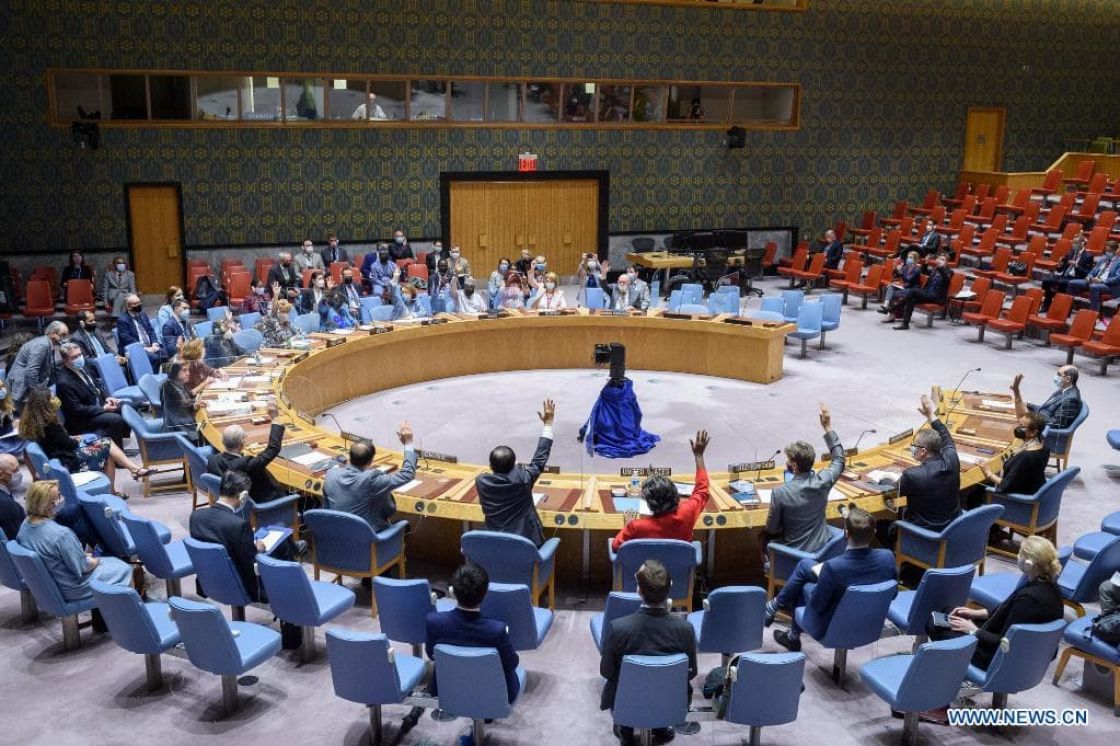- Editorials
- Posted
Why Were Some Upset About 2585?
Last Friday, the UN Security Council unanimously adopted resolution 2585 on delivering humanitarian aid cross-border and cross-line. Kassioun had noted in the last issue’s editorial, prior to the resolution, that “There is no doubt that among the Syrian, regional, and even international parties, there are those who are not at all pleased by the prospects of a Russian-American consensus, as this means getting closer to a solution and thus to change, and those rely on the fact that if a dispute occurs on this issue, it will allow for the creation of an atmosphere that undermines any consensus that took or will take place. This matter is far from reality”. That is exactly what happened.
The resolution has caused widespread disappointment among local, regional, and international circles from seemingly very contradictory parties. This requires an additional interpretation of the meaning and dimensions of this resolution, which certainly go beyond the humanitarian issue.
As a start, we must point out an important issue within the new resolution, which is that it is not just an extension of the previous resolution 2533 (2020), as many are trying to suggest. Not only did it extend the operation of Bab al-Hawa border crossing, but it is the first resolution that puts all the intervening countries, and the international community as a whole, before the responsibility of passing aid through what it calls the “cross-lines”, that is, the lines separating the different areas of control within the Syrian territory. Through this addition and tying it to other additions related to the humanitarian situation connected to the pandemic, in a way is a first practical step to confront the “de facto partition” situation, because opening the economic arteries among the different parts of a country is indispensable to restoring the country’s unity.
Despite the paramount importance of the humanitarian issue in the Syrian case, the political dimension of this resolution, the understanding of which can help in understanding the “resentment” and “disappointment”, can be condensed in the following points:
First: the extremists from all sides bet on not reaching a consensus on the resolution to perhaps leading to failure of reaching a greater consensus, as noted above. Since their bet was high, it has quickly turned into resentment and disappointment.
Second: the resolution draft that was proposed jointly by four countries including Russia and the US, and in parallel with a call between the presidents of the two countries specifically on this point, is an additional indicator that the “test” was successful, and that the volume of agreements reached thus far allows moving forward. Though it should not be understood therefrom that the agreement is complete, but it certainly has moved forward by several step.
Third: perhaps the most noticeable are the positions of some European countries and other regional countries and sides involved in the Syrian case, which have expressed equivocally their disappointment with the agreement on the resolution, something that reflects their fear of curtailing their role in the event that a Russia-US consensus is reached.
As for the extremists from the Syrian sides, the high possibilities of consensus with regards to the mechanisms of implementing UNSC resolution 2254 mean shrinking the margins of manipulation and timewasting. Therefore, it is not surprising at all that they would feel greatly betrayed and disappointed, and even openly express that.
In any case, any US acquiescence towards a solution will only be within the general logic explained by Kassioun’s editorial in issue No. 1024, entitled “Patriotic Syrians’ Wager”, that is, within the forced US withdrawals from our entire region, in which Washington will seek to leave as many mines as possible, which patriotic Syrians must dismantle by effectuating the true patriotic alignment of the plundered from all sides in the face of the plunderers and extremists, for whom the future will bring nothing but greater disappointments and broader sense of betrayal.


